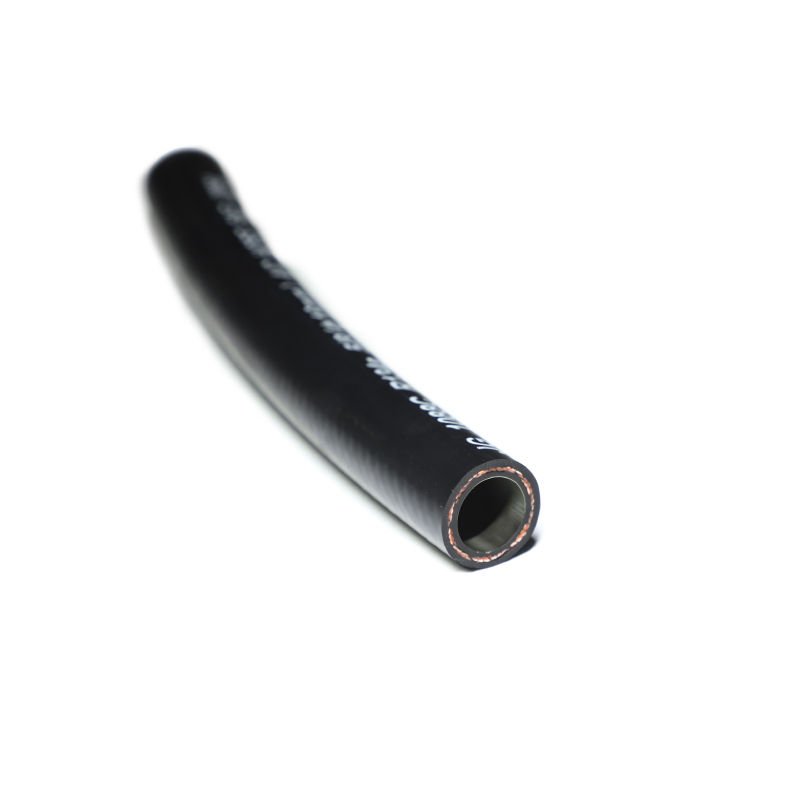gas fuel line hose
Dec . 17, 2024 19:11 Back to list
gas fuel line hose
Understanding Gas Fuel Line Hoses Essential Components for Efficient Fuel Systems
When it comes to the world of automotive engineering and machinery, various components play critical roles in ensuring the seamless operation of vehicles and equipment. Among these essential components, gas fuel line hoses are pivotal to the function of any gas-fueled vehicle. These hoses, often overlooked, are designed to transport fuel from the tank to the engine, providing a crucial pathway for combustion and energy generation.
The Importance of Gas Fuel Line Hoses
Gas fuel line hoses are more than just tubes; they are specifically engineered to withstand harsh conditions while maintaining the integrity of the fuel system. These hoses are typically made from durable materials such as rubber or synthetic composites, designed to resist high temperatures and the corrosive effects of various fuels. Their primary function is to safely deliver gasoline or diesel from the fuel tank to the engine, where fuel is mixed with air and ignited to power the vehicle.
One critical aspect of gas fuel line hoses is their ability to maintain pressure within the fuel system. A well-functioning fuel line helps ensure that the engine receives a consistent fuel supply, which is essential for optimal performance and efficiency. If a hose fails or develops a leak, it can lead to a decrease in pressure, resulting in poor engine performance, increased emissions, and potential damage to engine components.
Types of Gas Fuel Line Hoses
Different applications require different types of fuel line hoses. Common types include
1. Standard Fuel Line Hoses Typically made from rubber or reinforced synthetic materials, these hoses are suitable for most gas engines. They handle regular gasoline or diesel and can endure moderate temperatures.
gas fuel line hose

2. High-Pressure Fuel Hoses These are designed for performance vehicles that operate under intense pressure conditions. High-pressure fuel hoses are often reinforced with additional layers to prevent bursting and leaks.
3. Biofuel-Compatible Hoses With the rise of biofuels, specialized hoses that can withstand the corrosive nature of these alternative fuels have become essential. These hoses are made from materials that resist degradation when in contact with biodiesel or ethanol blends.
4. Flexible Hoses In applications where space is limited, flexible hoses provide the necessary adaptability while maintaining a secure fuel line.
Installation and Maintenance
The installation and maintenance of gas fuel line hoses are vital to ensuring their longevity and efficiency. When installing a new fuel line hose, it is crucial to ensure that it is appropriately secured and fitted to avoid kinks or bends that can restrict fuel flow. Regular inspection of the hoses for signs of wear, such as cracks, abrasions, or swelling, is important. Any damage should be addressed immediately to prevent leaks and potential fire hazards.
Moreover, the use of the correct clamps and fittings is essential to maintain a tight seal and prevent fuel spillage. It is advisable to follow manufacturer recommendations for the specific type of hose to be used, as compatibility with fuel types is crucial for optimal performance.
Conclusion
In conclusion, gas fuel line hoses are indispensable components that play a significant role in the efficiency and effectiveness of fuel systems in vehicles and machinery. Understanding the types of hoses available and the importance of proper installation and maintenance can lead to improved performance and longevity of the engine. As automotive technology continues to evolve, the materials and designs of gas fuel line hoses will likely advance, ensuring that they meet the demands of modern fuel systems and sustainable energy solutions. For vehicle owners and enthusiasts, recognizing the significance of these unsung heroes of automotive engineering can lead to more informed choices and better care for their vehicles.
